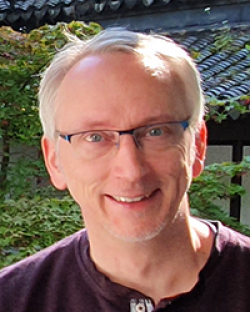The focus of our research is on identifying proteinogenic changes that are in the context of neurodegenerative diseases such as Parkinson's and multiple sclerosis or muscle diseases. In addition to analysing potential disease-relevant biomarkers, we are interested in researching the underlying mechanisms. To this end, we work closely networked with national and international scientists in a wide variety of projects.

Prof. Dr. Katrin Marcus
Ruhr-University Bochum
ProDi, Room E2.259
Gesundheitscampus 4
D-44801 Bochum
Phone.: +49 234 32 18106
The research area "Medical Bioinformatics" at the Medical Proteome Center (MPC) is headed by Prof. Dr. Martin Eisenacher. The scientists of the research area accompany the applied research of the other research areas of the Medical Proteome Center with customized solutions and address their own questions as well as the optimization of methods of bioinformatics / biostatistics for proteomics with mass spectrometry (both are supported by state-of-the-art IT solutions such as the server virtualization system with numerous compute servers and databases, as well as the archive and backup solutions, workflow environments, cloud computing, containerization and orchestration).
The newly developed and established methods and algorithms are used for statistical and bioinformatics analysis of mass spectrometric data on the one hand and quantitative clinical data and protein expression data on the other hand in order to answer questions from the life sciences.
Some current keywords on methods and algorithms (as of 8 / 2022):
The research area "Medical Bioinformatics" has been involved in the "German Network for Bioinformatics Infrastructure (de.NBI)" since 2014 (BMBF funding from 2014-2021, now located at Forschungszentrum Jülich), in which the area’s expertise is offered to life science researchers in various tool or evaluation-based services as well as training (see here). de.NBI is part of the European ELIXIR infrastructure (https://elixir-europe.org/) as the German node.
In the research building "PRODI - molecular protein diagnostics", data from different clinical and instrumental fields are evaluated across platforms. The aim is to identify and validate early biomarkers for neurodegenerative diseases such as Alzheimer's and Parkinson's disease and for cancerous diseases such as colon and lung carcinoma.
Members of the research department teach courses on bioinformatics in different faculties and courses of study, and we regularly assign topics / projects for internships, bachelor's, master's and doctoral theses.

Prof. Dr. Martin Eisenacher
Ruhr-University Bochum
ProDi, Room E2.269
Gesundheitscampus 4
D-44801 Bochum
Phone.: +49 234 32-18104
Fax: +49 234 32-14496
The research area "Clinical Proteomics" under the direction of Prof. Dr. Barbara Sitek deals in its translational research with the development and application of proteomics methods for handling clinical questions. The connection to the Knappschaftskrankenhaus Bochum with its clinical focus on intensive care medicine creates the important link between the successful analytical proteomics platform and clinical application. Of great interest is the identification of disease-specific biomarkers and therapeutic targets as well as the elucidation of pathological relationships at the protein level. In addition to questions from intensive care medicine, further research focuses on cancer and infectious diseases as well as immunological questions
Cancer is one of the most frequent causes of death in Germany and worldwide. Despite great efforts during the last decades, there is still an urgent need for new diagnostic and therapeutic target molecules. Quantitative proteome analysis allows the discovery of novel proteins which are associated with malignancies. Pathophysiological mechanisms can be clarified and diagnostic tools (biomarkers) or therapeutic targets can be identified. In our group a main focus lies on the investigation of colorectal cancer, which is the second most frequent kind of cancer in Germany. Another emphasis is on the investigation of pancreatic cancer and malignancies of the liver. We make use of methods enabling the selective isolation of cell populations out of crude tissue in order to identify distinctive differences between tumor cells and the corresponding non-tumorous cells. Newly identified target proteins are investigated regarding their functional and diagnostic relevance by means of targeted mass spectrometry and antibody-based methods.

Prof. Dr. Barbara Sitek
Ruhr-University Bochum
ZKF, Room 1.063
Universitätsstraße 150
D-44801 Bochum
Phone.: +49 234 32 24362
MEDICAL PROTEOM-CENTER, RUHR-UNIVERSITÄT BOCHUM
The mission statement of the Medizinisches Proteom-Center describes our institute´s strategic tasks, aims and values. The mission statement serves as a guideline, orientation and motivation for the research areas and all work groups of the Medizinisches Proteom-Center. It is supposed to help the employees of the Medizinisches Proteom-Center to identify themselves with the institute´s ambitions and ethics and it defines guiding principles of how these aims are to be reached.
WE PERFORM RESEARCH ON THE HIGHEST SCIENTIFIC LEVEL.
The focus of our research is on prevailing medical questions which we answer with innovative proteome-analytical technologies. We present the results of this research in high ranking publications and on international conferences. Our motivation is an active contribution to the elucidation of causes and mechanisms of disease development and progression. With our work, we stand for reliability and trust and we are, therefore, involved in many successful collaborations and consortia.
WE STAND FOR HIGH-QUALITY TEACHING.
Due to our inter-disciplinary concept, we are able to impart a broad range of knowledge, practical methods and up-to-date techniques to students of different disciplines. By regularly attending didactical training we continuously enhance our teaching skills in order to offer high standard lectures and seminars. Likewise, we consider and discuss the students´ evaluations as being constructive feedback.
WE PAY ATTENTION TO OUR COMMUNICATION.
Our communication is characterised by tolerance and the respectful interaction of our employees with each other. We communicate with colleagues and third parties in a friendly, objective and fair manner. Conflicts and criticism are met constructively and we live an open feedback culture. Every employee has the possibility of helping to develop the team´s quality on the professional as well as on the personal level, to engage him or herself in the academic environment and to take responsibility.
WE ARE A UNITY OF DIVERSITY.
We unite employees and students from diverse fields and different levels of qualification. Due to exchange and cooperation we benefit from our diverse areas of expertise. We respect the principal of equal opportunities and consider our gender-related, cultural and social diversity enriching.
WE BENEFIT FROM OUR STRENGTHS TOGETHER.
Our work is characterised by a broad range of skills. Teamwork and exchange between the different work groups lead to corporate ideas and objectives. Together we create and maintain a network of helpfulness, creativity and motivation. We support the continued development of our employees and the institute.